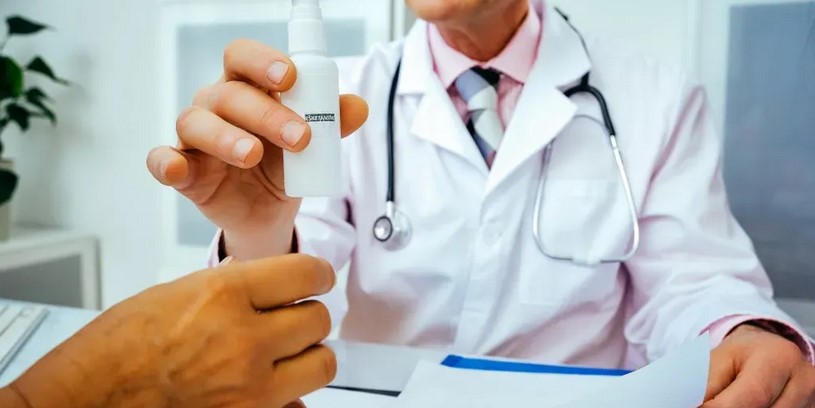This blog was originally published on June 10, 2024. It has been updated to include the most recent information and research.
Depression affects millions of people worldwide, and for up to 30% of those with major depression, traditional treatments fail to provide relief. This condition is known as treatment-resistant depression (TRD). For those suffering from treatment-resistant depression, Spravato, a prescription nasal spray containing a ketamine derivative called esketamine, can be a game changer. Approved by the FDA in 2019, Spravato has revolutionized the landscape of depression treatment, providing rapid relief for many.
How is esketamine different from ketamine?
Ketamine is a substance consisting of two molecules, R-ketamine and S-ketamine. Esketamine is chemically related to ketamine but has a distinct chemical composition, being derived exclusively from the S-molecule. It’s a more potent option that can be administered at lower doses and therefore, theoretically, can have less side effects.
- Administration: Ketamine is typically given via intravenous (IV) infusion or intramuscular injection, while Spravato (esketamine) is delivered as a nasal spray.
- Approval: Ketamine is FDA-approved as an anesthetic and is often used off-label to treat depression. Esketamine, on the other hand, is specifically FDA-approved for TRD. This also means that with a proper diagnosis, it’s covered by insurance.
- Mechanism: Esketamine binds more selectively to the so-called NMDA receptors in the brain, which is thought to give it more potent antidepressant effects than ketamine.
How does Spravato work?
Unlike traditional antidepressants, which work by boosting levels of the chemical messengers serotonin, dopamine, and norepinephrine, Spravato targets NMDA receptors in the brain, which in turn interact with glutamate – a key chemical messenger. By increasing glutamate activity, Spravato enhances communication between brain cells, helping to stabilize mood and improve cognitive function.
This process addresses the root causes of depressive symptoms by promoting balance in brain chemistry. Beyond its chemical effects, Spravato also stimulates neuroplasticity – the brain’s ability to form and reorganize connections. This “rewiring” of the brain has the potential to repair some of the stress-induced damage that chronic depression can cause, such as the shrinkage of critical brain areas.
Many patients report a rapid reduction in depressive symptoms, often within hours of the first treatment session. Clinical studies have also demonstrated that esketamine nasal spray can lead to a rapid reduction in symptoms for individuals with treatment-resistant depression (TRD) – as quickly as four hours after treatment.
The treatment process
Spravato is administered as a nasal spray in a clinical setting under medical supervision to ensure safety and effectiveness. When administered under professional supervision, Spravato is a safe and effective treatment. During each session, patients self-administer three doses of the spray, spaced several minutes apart, under the attentive care of clinical professionals.
Ketamine treatment typically begins with twice-weekly sessions for four weeks, followed by a gradual reduction in frequency based on individual response. While Spravato is generally well-tolerated, some patients may experience mild and temporary side effects such as nausea, dizziness, feelings of dissociation, or elevated blood pressure. These side effects usually resolve shortly after the session.
The benefits of Spravato
For individuals battling treatment-resistant depression, Spravato can be a significant breakthrough. Benefits include:
- Rapid relief: Many struggle to find relief with traditional treatments, spending months or years testing different medications. Spravato offers a radically faster solution.
- Effectiveness for TRD: Approximately 70% of patients respond positively to the treatment, with over half achieving remission of symptoms after four weeks.
- Noninvasive administration: The nasal spray is a comfortable treatment option.
- Long-term change: By promoting neuroplasticity, Spravato potentially reverses some of the stress-related damage to the brain caused by chronic depression.
At Keta Medical Center, we’re committed to providing cutting-edge treatments like Spravato in a compassionate and professional environment. To find out if this innovative therapy is right for you, schedule a consultation with one of our experienced physicians today.




